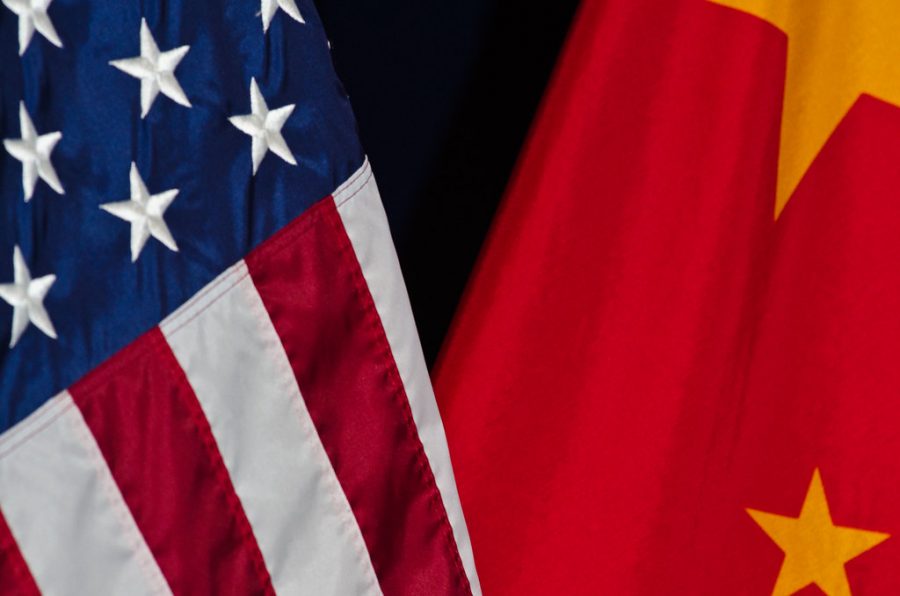Burton: Voters Should Pay Attention to US-China Relations in 2020
March 17, 2020
Two hundred years ago, the legendary French general Napoleon Bonaparte exclaimed the prophetic words “China is a sleeping lion. Let her sleep, for when she wakes, she will shake the world.” Though Napoleon did not live to see his prediction tested, his words ring especially pertinent today. Since the late 1970s, China has been growing at astronomical rates, doubling its GDP approximately every eight years. China is expanding not only its immense economic influence, but also its cultural and social influence. The international community is dedicating tremendous attention to “the sleeping lion,” and 2020 voters should, too.
The United States’ influence has also grown tremendously within a short period. Many cite the 20th century as the “American Century” for similar reasons for that of China’s. With its tremendous influence, the United States has played key roles in many international incidents post-WWII, particularly the Cold War. Informally, the U.S. has assumed leadership and dominance (often referred to academically as “hegemony”) in the world for the last 70 years or so, but the rising influence of China poses a serious contender to the position. As we enter the election year of 2020, the future of foreign relations with our greatest international opposition is dependent on whom we elect. Though China is physically distant, the relationship shared between China and the United States has very personal and powerful effects on everyday Americans.
Consider the deeply intertwined economies of the U.S. and China, not to mention the rest of the world’s. The recent trade war between the two countries has not only damaged them both, but the collateral is felt worldwide. For example, in a policy brief by the Peterson Institute of International Economics, economists predict a noticeable disruption in trade with major partners and neighboring countries of Canada and Mexico. Domestically, the toll has been heavy on several industries (and their corresponding labor markets) including aeronautics, manufacturing and autos. The recent trade deal has eased tension between the two countries, but a good portion of the tariffs are still in place. The progression of this precarious economic situation will depend on who wins the U.S. presidency in 2020. How they decide to carry out economic policy with Chinese lawmakers will dramatically affect laborers on both sides.
China will also have an important impact on the world’s environmental future and on U.S. credibility. The emissions of both countries are two of the highest in the world and their carbon emissions policies are under scrutiny from the international community. Trump’s focus on environmental policy has distanced itself from Obama’s policies. This prominently hit the international stage with his decision to withdraw from the Paris Climate Accords. Climate change efforts have historically been an issue that has unified both countries. To place less emphasis on such policies can take away much needed cooperative spirit. Climate change, no matter which stance you take towards it, is a tenant that brings credibility to the international stage. U.S.-China efforts in climate change set precedents for other countries and influence the overall health of the earth.
U.S.-China relations are particularly sensitive to matters of geopolitics. A faulty move on either side can cause major armed conflict and economic turmoil. Things are especially tense in East Asia and Oceania, home to the major economic powerhouses of Japan, South Korea, Taiwan and Australia. All of these countries have decades-long and deep relational ties with the U.S. that are being challenged by the influence of China. This steady shift of influence in East Asia indicates that overall U.S. power is dwindling. Though the U.S. still maintains tremendous influence, the next administration’s foreign policy needs to recognize the challenges posed by China. The stakes are very high, and the question voters should ask themselves is if a candidate’s administration’s relationship with China will be a “shared hegemony” or a zero-sum contest of dominance.
Americans should think globally during presidential elections. As the century progresses and the two countries grow in influence, U.S.-China relations will become a more and more critical issue. How this relationship evolves is largely dependent on who our policymakers will be in the upcoming years. Their foreign policy can have tremendous effects on how U.S. values are espoused to the world, our economic balance with other countries and our credibility as a state in the world stage.








